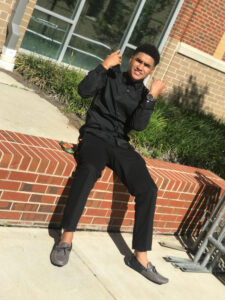
DeAndre Gibbs is a 21-year-old computer information systems student at Florida A&M University. Gibbs is from West Palm Beach, where the majority of the people around him are white. According to Gibbs, attending an HBCU was a culture shock.
“I always felt different (growing up) and out of place. Going to FAMU surrounded me around people who look like me, think like me, and have a goal like me,” Gibbs said.
African Americans constantly have to deal with racism and ignorance from people of the majority race. There are many incidents where black people have to hold their tongue and turn the other cheek because of “accidental racism.”
Gibbs said that in his hometown white people would genuinely ask questions wondering if his dad is in his life or if he is afraid of dogs.
The campus of Florida A&M is filled with not only ambitious black students who want to accomplish something in life, but with a group of people who understand the struggles and hardships of being black in America. Also, minorities often have similar opinions on social issues. FAMU offers a space for like-minded students to relate to one another.
Gibbs believes that African Americans tend to fall victim to the system. In other words, because of stereotypes created and talked about among white people, black people start to believe that that is how they are supposed to act. Every student at FAMU has some type of goal and aspiration despite what the stereotypes have to say.
“Nothing but black excellence enters and leaves FAMU. You will see the hardest workers walk the seven hills,” Jahkel Wilson, a business student at FAMU,said.
Gibbs explains that one of the things he likes the most about FAMU is that everyone accepts everyone for who they are. What society does not like about African Americans are normalized; the music, culture, opinions, and the number one thing society hates the most about African American: Being black.
Leaving campus and going back to the real world reminds you how different life actually is. It is easy to get soaked up in the history and the culture.
FAMU reminds black students how far their people have come, and how far they can potentially go.
“I used to think being black was going to limit me in the work world, but coming to FAMU showed me that I can accomplish anything. My ancestors have done it, alumni have done it, and so can I,” Nyah Williams, a criminal justice student, said.
FAMU is a place where black students can be themselves. They do not have to filter themselves or cater to any other race. For once, African Americans are the majority.